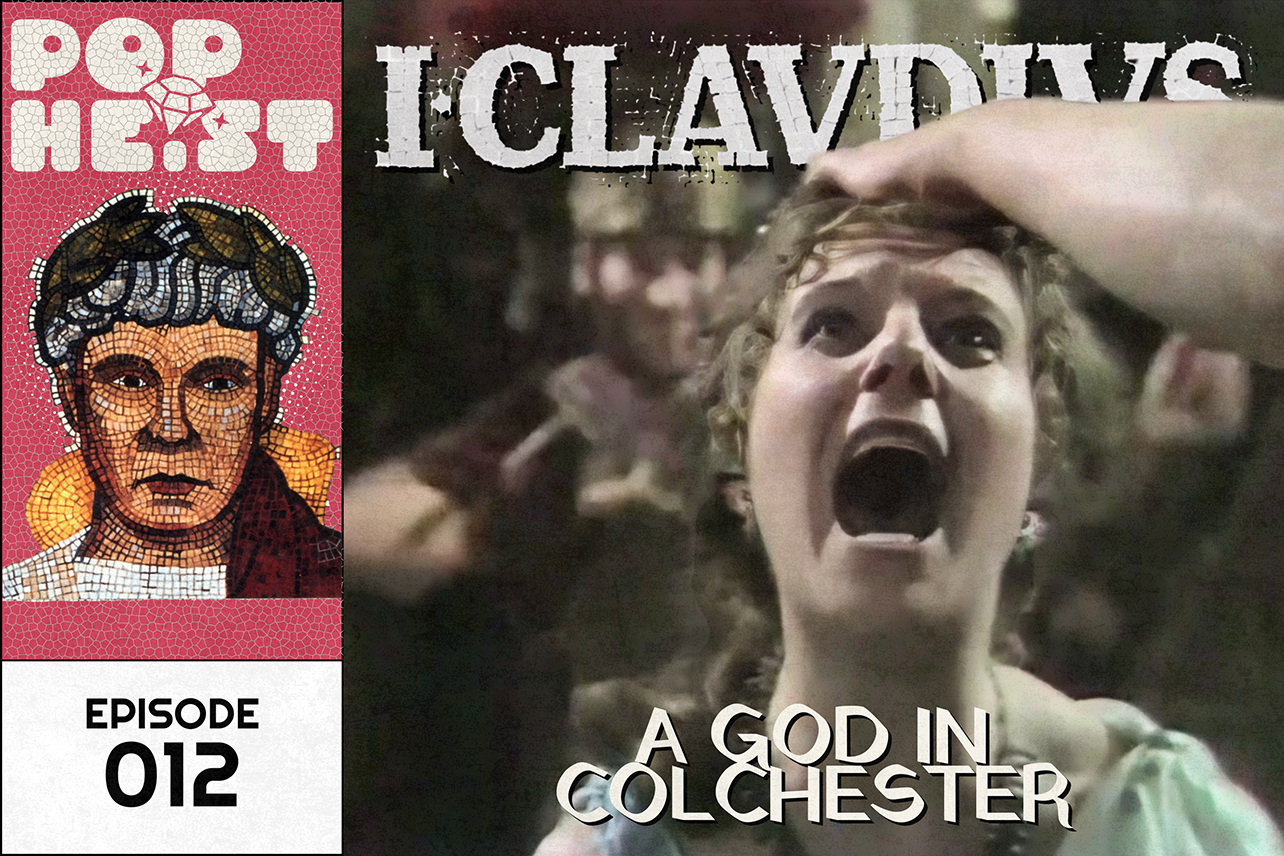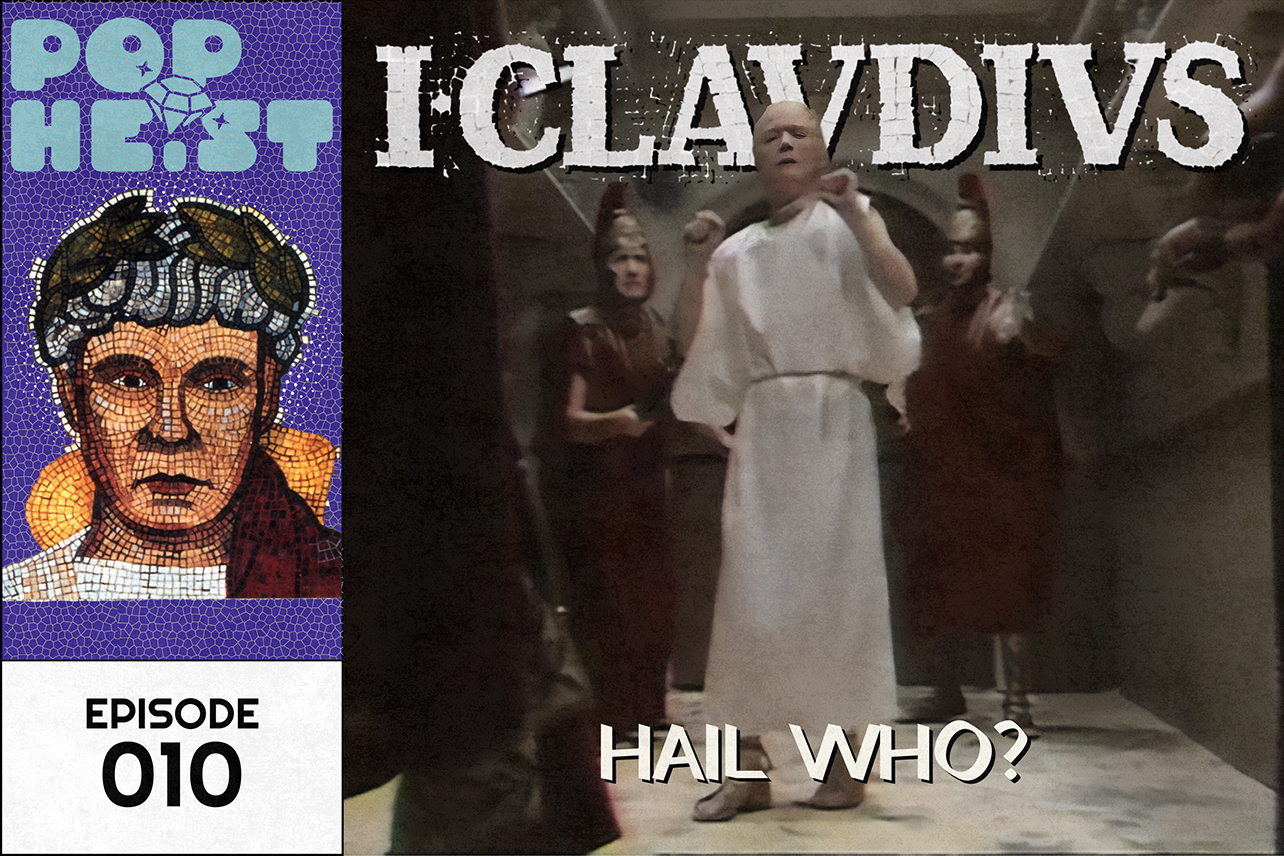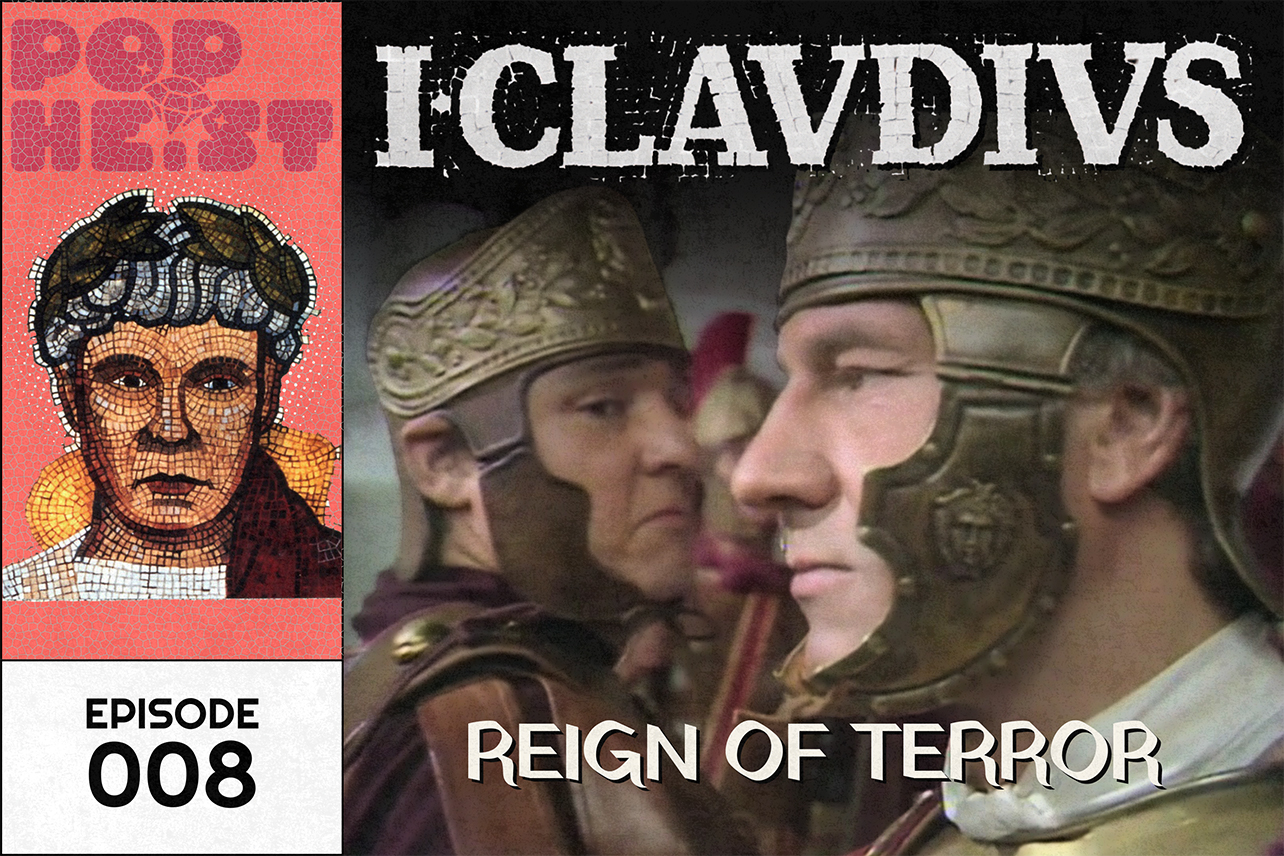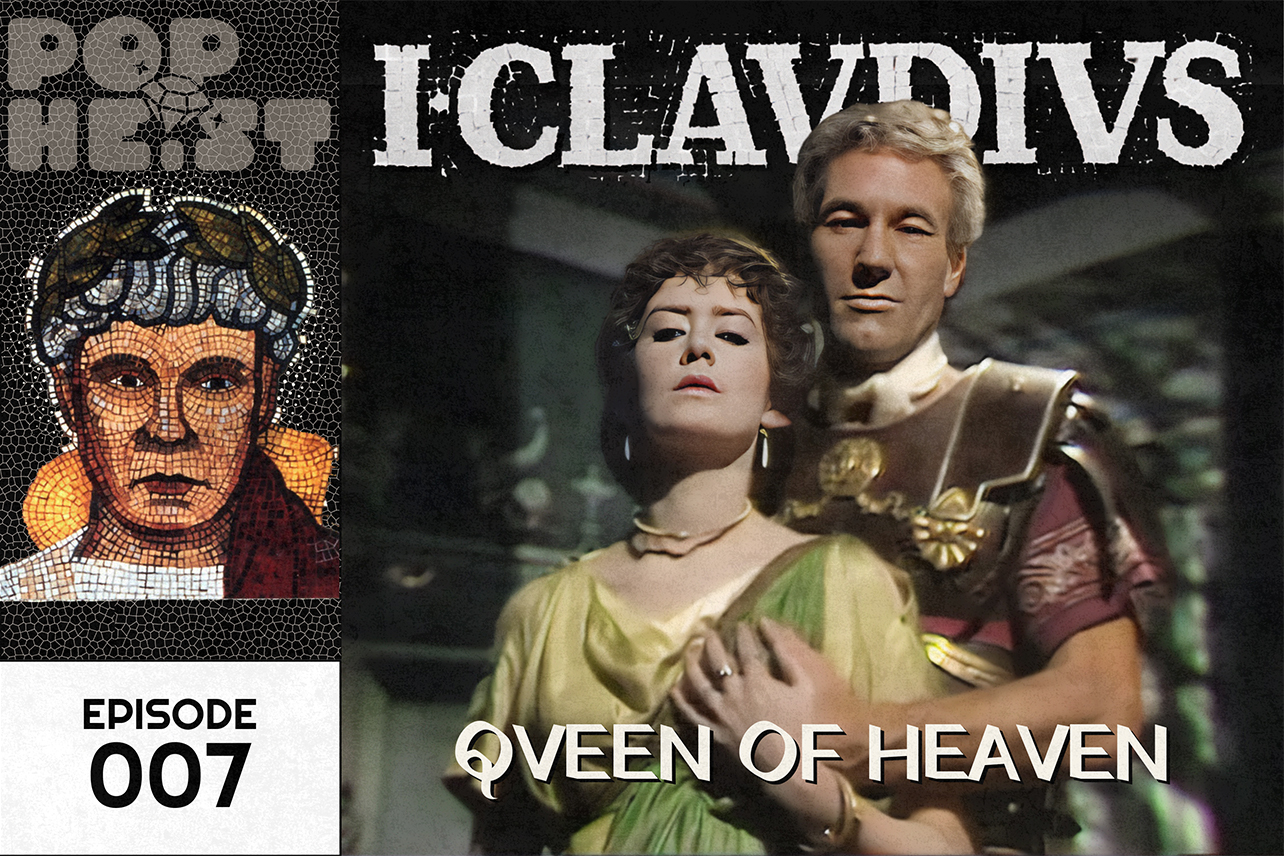In PRESTIGE PREHISTORY, Pop Heist critic Sean T. Collins takes a look at classic TV shows that paved the way for the New Golden Age of Television — challenging, self-contained series from writers and filmmakers determined to push the medium forward by telling stories their own way.
I, Claudius Episode 13
“Old King Log”
Original Airdate: December 6, 1976
Writer: Jack Pulman (based on the novels I, Claudius and Claudius the God by Robert Graves)
Director: Herbert Wise
Cast: Derek Jacobi, Bernard Hepton, John Cater, Barbara Young, Christopher Biggins, Graham Seed, Peter Bowles
It’s all over but the burning. At least, that’s what Emperor Claudius thinks.
The final episode of I, Claudius takes place not so much in the autumn of the title character’s years as it does in the barest of winter. Seven years after the execution of his erratic and insatiable wife Messalina, Claudius is a shell of a man. Some of this is due to the accumulated sorrows of his life, of course — the deaths of so many people so close to him, often by one another’s hands, in Messalina’s case by the unwitting stroke of his own pen.
Britannicus (Graham Seed), his teenage son and heir, has hated him ever since. For his part, Claudius has been no father to Britannicus in turn. Secretly believing him to be the biological son of his demented nephew Caligula, he could never quite bring himself to love the boy. (Failure to care for his own immediate family has been a fault of Claudius’ back to his first arranged marriage.)
What’s worse, Claudius seems bound and determined to ensure that Britannicus is passed over, if not simply done away with entirely. He has married his own niece, the transparent schemer Agrippinilla (Barbara Young, wife of screenwriter Jack Pulman), formerly an enthusiastic lover of her mad brother Caligula. He has repeatedly promoted and advanced her own son, the pampered princeling Nero (Christopher Biggins), over his own. He’s even married Nero to his daughter, Octavia (Cheryl Johnson).
The message Claudius is sending to Rome in his dotage is crystal clear: Nero is to succeed him as Emperor of Rome and ruler of the known world. Under these circumstances, the people closest to him, from his son Britannicus to his close adviser Narcissus, will be lucky if they end up as well as one of Claudius’ most indefatigable foes: Caractacus, King of the Britons (Peter Bowles).
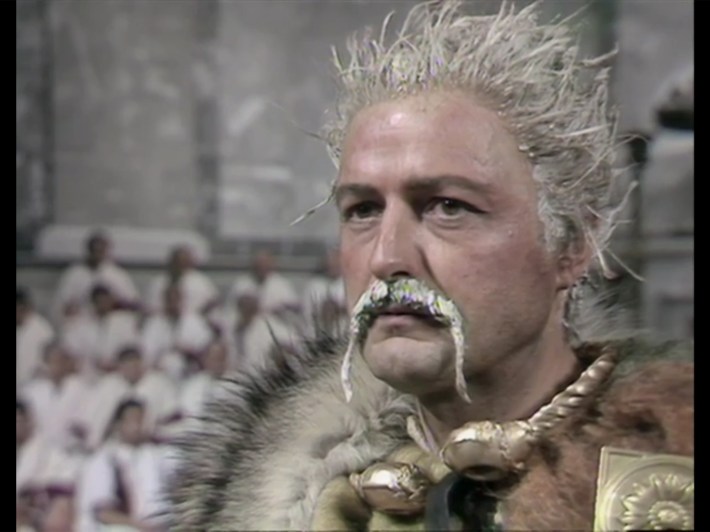
Brought before the Senate in defeat, this guerilla warlord so impresses the Romans with his dignity and courage that he’s granted a life of relative luxury in the imperial capital. Claudius doubts that Nero will be that generous.
But that’s the idea, as it turns out. From the start of this episode, in which a triumphant Agrippinilla and Nero look down at Claudius’ dead body — they poisoned him, which on this show is perhaps needless to say — the usurpers appear to be in the pole position. In fact, the manipulators have themselves been manipulated by Claudius. In the sense that he has lived to see old age at all, he is perhaps the most masterful manipulator in the series.
Claudius, you see, remains an adherent of that oldest and most outmoded forms of Roman government: democracy, or its ancient equivalent. He has come to regret his emperorship, which he used to rule justly and benevolently. O folly! A just and benevolent emperor, he realizes, is the last thing Rome needs: “By dulling the blade of tyranny I have made a grave error,” he says. “Violent disorders call for violent remedies.”
Then he utters a refrain that is repeated five separate times: “Let all the poison that lurks in the mud hatch out.”
Claudius’ fourth wife and stepson can plot all they want. His advisors, loyal Narcissus and treasonous Pallas (not-so-secretly Agrippinilla’s lover), can bicker. Britannicus, the son of his heart, can rage over the understandable hurts he has suffered from the man he was raised to call Father. But “Old King Log,” as Claudius calls himself – reflecting not only his self-inflicted blindness but the fact that a small army of “frogs” raised him up so they’d have someplace comfortable to rest – has his own plan in mind.
It’s a plan ordained by the gods. Years earlier, the divine Augustus himself visited the same masked Sybil we saw Claudius encounter in the series premiere. The verses she spoke frightened him so much that they were kept out of the official record; only his wife Livia knew of them, and she bequeathed them to Claudius during their final conversation half a season ago. Apparently, they’ve guided his actions ever since.
We already knew, since Livia said so, that they foretold Claudius’ reign. Claudius reveals to Britannicus that they additionally saw Caligula coming – and Nero, an emperor even more insane and destructive than that would-be Jove. Nero’s actions will reduce Rome to rubble and ash, Claudius believes…perfectly positioning the son he truly loves and respects, Britannicus, to emerge from hiding with Caractus’ contacts in Britain and restore the Republic!
Great plan! With one problem: Britannicus doesn’t want to end the Empire, he wants to rule it.
Look, I dunno what I wanted to happen here. I’m familiar with the broad contours of history. I’m aware, and frankly fucking hopeful, that actions have consequences, and mad kings can’t torch their kingdoms willy-nilly without not only that king but the entire concept of royalty having a great fall as a result.
But that’s not how it worked out in reality, and it’s not how it’s going to work out here. Nero will rule, yes. He’ll kill Britannicus, Agrippinilla will kill Narcissus, Nero will kill Agrippinilla, and Rome will burn. But the Romans will not suddenly lose their taste for monarchy.
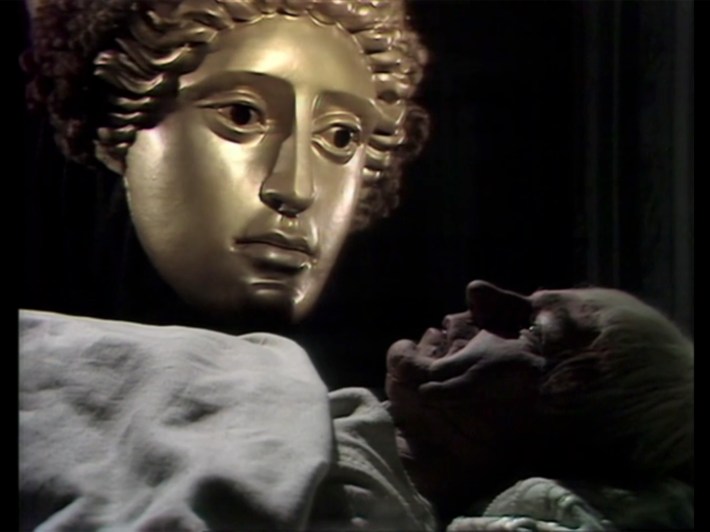
A spectral vision of the Sybil appears to Claudius upon his death, informing him the Empire will live on, and that the future Emperors won’t be such a bad lot, “give or take a few.” His own demented family’s time wearing the laurel crown, however, comes to an end with Nero, no doubt for the best.
It’s a grimly funny moment. Just a few scenes earlier, the show wrings a lot of laughs out of how far ahead of Agrippinilla Claudius really is. Every time she tries to suggest some new underhanded maneuver, Claudius simply says “yes” before she can finish speaking, driving her crazy. She worked really hard on all this skullduggery, goddammit! Let her get a word in edgewise!
But now Claudius has been outfoxed himself, not by one of his evil family members, but by the broader forces of sociopolitics. No matter how hard Claudius tried to play the fool while quietly wielding his genius, one man could not stop the river of history from flowing once Julius and Augustus broke the dam. To believe otherwise was hubris on the level of Caligula’s belief in his own divinity.
Which even Caligula, it seems, has come to learn was a mistake. In what I think is my favorite scene of the entire show, the aged Emperor Claudius has a seizure while delivering his farewell address to the Senate. Appearing from thin air are the ghosts of his beloved, detested family: Grandpa Augustus and Grandma Livia, his mother Antonia, his stepfather Tiberius, his nephew Caligula. All of them stare directly into the camera and deliver their own farewells to this local boy made good.
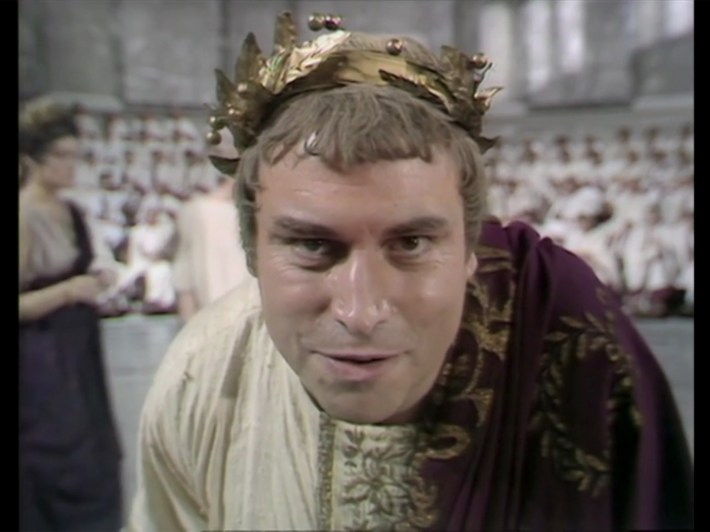
“Well done, Claudius,” Augustus grins. “Emperor after all! Who would have thought it?
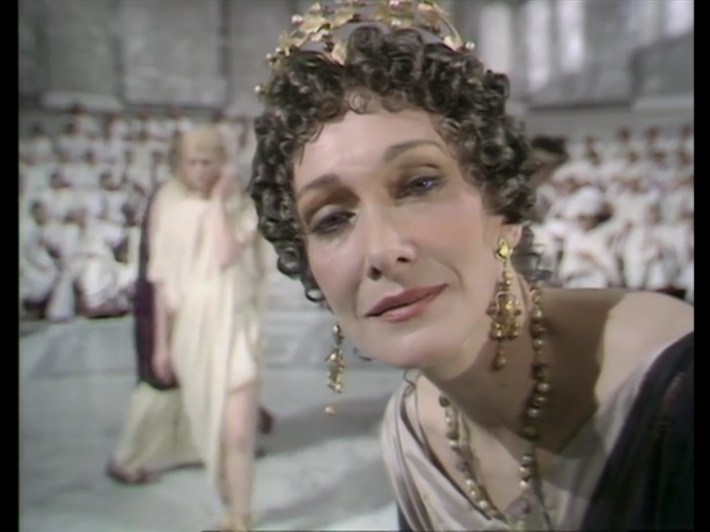
“You’re a fool, boy, you always were. People say it’s not your fault, but if it’s not your fault, whose fault is it, eh?” Livia asks.
“Your nose is still running,” Antonia kvetches.
“It wasn’t worth it, was it? I could have told you that,” laments Tiberius.
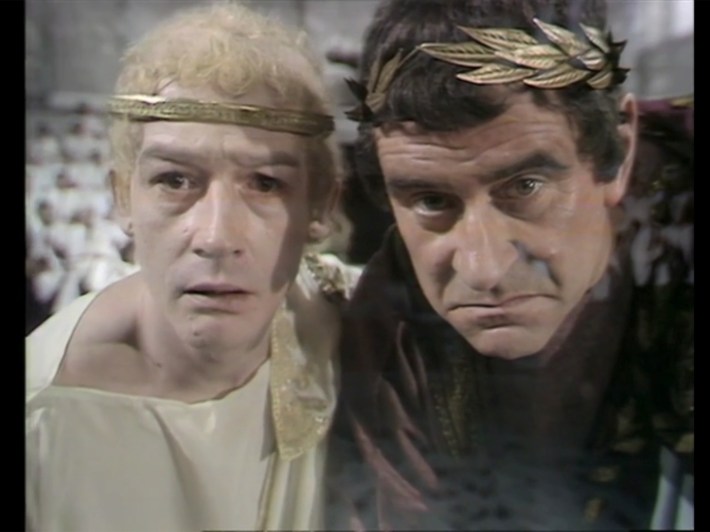
“Uncle Claudius, I wasn’t the Messiah after all!” Caligula says, his eyes still registering the shock. “Would you believe it? You could have knocked me over with a feather when they told me.”
Who are “they,” by the way? The gods? The dead? The ghosts of the Julio-Claudians? The assembled false messiahs of all the ancient world? On this even the garrulous Caligula is silent.
In one narrow sense at least, Claudius wins in the end. Hunting for his will, Agrippinilla and Nero uncover his secret history of his family, and they’re about as happy with their portrayal in it as you’d expect. They burn the manuscripts they find, with Nero groaning “What a pretty thing a fire is!” with barely contained pyromaniacal ecstasy. (Earlier we see him play a lyre, which is close enough to a fiddle I suppose.)
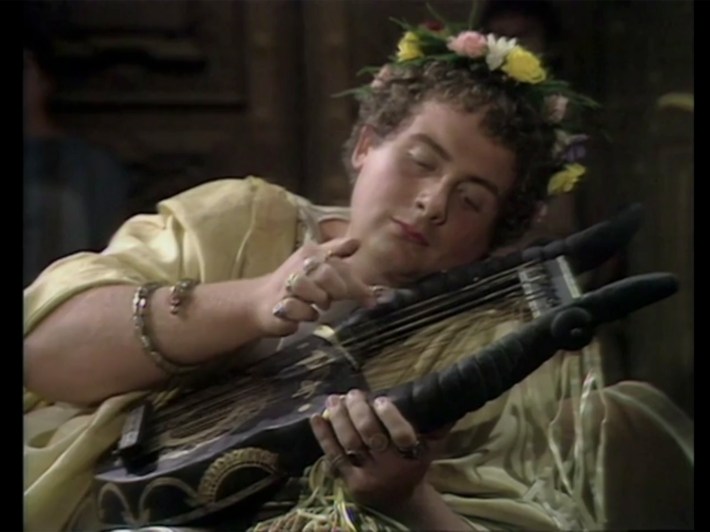
But Claudius and the Sybil get the last laugh. They alone know he made a second copy hiding it someplace his successors can’t find it, and that it will be uncovered centuries later — just in time for the 1930s publication of Robert Graves’s two Claudius novels.
As for Jack Pulman and Herbert Wise’s 1976 TV series? To call it a masterpiece is to understate the case. With a cast that turns over completely mid-series, it keeps churning out compelling new characters, brought to life with performances that feel rivetingly true to life yet grandiose enough to burn Rome down around them. Brian Blessed, Siân Phillips, George Baker, Patrick Stewart, Patricia Quinn, John Hurt, Sheila White, and Derek Jacobi alone sear themselves in your memory with their terrible energy; they are the glistening tip of a spear made of ace supporting players seemingly without end.
With a budget and design aesthetic more attuned to live theater than broadcast television, it uses deft camerawork and industry-best blocking of its actors to draw the audience into a conspiracy of make-believe. Long takes that allow you to sink into the acting and thus inhabit a world you know is not real; you may not be there, but you are there. Since so much of the work is done in-camera, when the series does resort to visual effects or striking editing choices, they hit like a freight train. Try shaking the feeling of all those characters talking directly to you in this episode, I dare you.
What emerges paramount from it all, from those spectral faces looming in the lens on down, is the feeling of ancient history speaking to the present. It is madness, madness, to trade away hard-learned, hard-fought moral and political principles for the expediency of autocracy. The lives of first Augustus and then Claudius himself prove there is no such thing as a benevolent dictatorship; surrender your rights and you have no right to complain when you are forced to surrender far more.
In his farewell speech, Claudius announces it is his intention to reveal the Empire for what it really is. Beneath the Sybil’s mask we see a familiar face.

